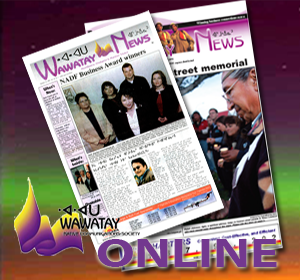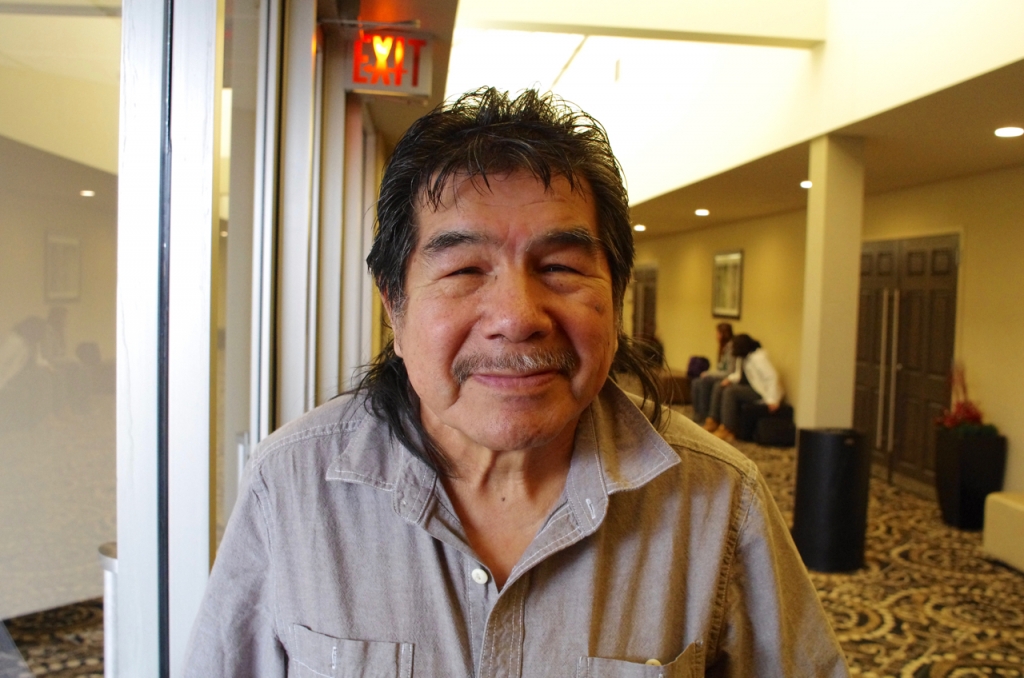Grand Chief Alvin Fiddler says the Truth and Reconciliation Commission’s 94 Calls to Action are a call to all Canadians, not just the provincial or federal governments.
“For the prime minister to publicly state their commitment is very encouraging,” Fiddler says. “That is something that we should all follow through as well. We all need to make that commitment to be a part of that reconciliation, to be part of that healing. We all need to move past this experience and for the sake of our children to build strong families and stronger, healthier communities.”
The TRC released its Final Report on Dec. 15 at the Shaw Convention Centre in Ottawa. A webcast of the ceremony is available online at: www.trc.ca/websites/trcinstitution/index.php?p=903.
During the ceremony, Prime Minister Justin Trudeau recalled how a teacher in one of the “very good schools” he attended refused to teach the chapter on Indigenous Canadians.
“The teacher shrugged and said: ‘This chapter’s not very interesting and not very important so we’re going to skip it,’” Trudeau says. “And we went on to talk about the Durham Report or some other such things. Let me tell you, the work you have done here today, the work that all of you here are a part of, will ensure that never again in the future of Canada will students be told that this is not an integral part of everything we are as a country, everything we are as Canadians. That is a promise we make right here, all of us together.”
Trudeau says the Indian residential school system was one of the darkest chapters in Canadian history.
“The burden of this experience has been on your shoulders for far too long,” Trudeau says. “The burden is properly ours as a government, and as a country. Moving forward, one of our goals is to help lift this burden from your shoulders, from those of your families, and from your communities. It is to accept fully our responsibilities – and our failings – as a government and as a nation.”
Fiddler says the media needs to look at the role they can play in the implementation of the TRC’s 94 Calls to Action and the road towards reconciliation.
“They need to make it their mission and for them to truly understand the issues of our communities before they report on any of our issues,” Fiddler says. “The education piece is so important for anyone reporting on our issues. They really need to understand where we are coming from. We’ve seen that at the national level and even here at the regional level.”
Long Lake #58 Chief Allen Towegishig says residential school survivors are still suffering from their experiences in residential school.
“We couldn’t speak our language at St. Joseph’s, they put soap in our mouth,” Towegishig says. “When I went to residential school, I was Anishinabe. By the time I finished, they knocked the Indian out of me. I used to be close to my grandmother and grandfather, but after I finished school I was scared of them. And I was ashamed to be Anishinabe.”
Towegishig says more healing services are required for residential school survivors.
“I’m happy to say I’m proud to be Anishinabe now after I’ve gone through my healing,” Towegishig says. “For us people on our healing journey, an apology doesn’t mean anything to me because I’ve already accepted it, I’ve already forgiven them. But the people who are still suffering, it would be nice to be acknowledged that (the government and churches) did harm and that shouldn’t happen and it’s not going to happen again.”


















One of the most beautiful serene places I’ve ever visited was on the banks of the Opinagau River in northern Ontario, just near the corner of land where...
This wave of cold weather reminds me that I do not have a lot of motorcycle riding time left and that summer will soon be turning into fall. Students are...